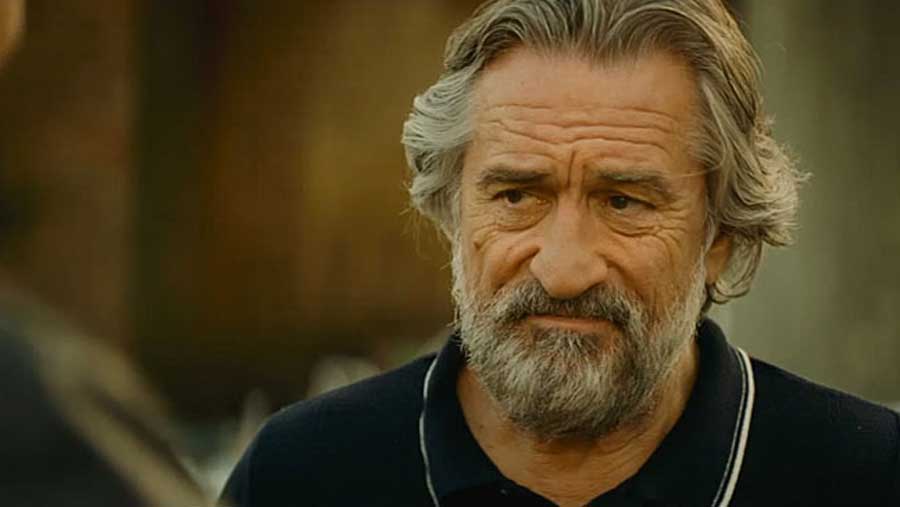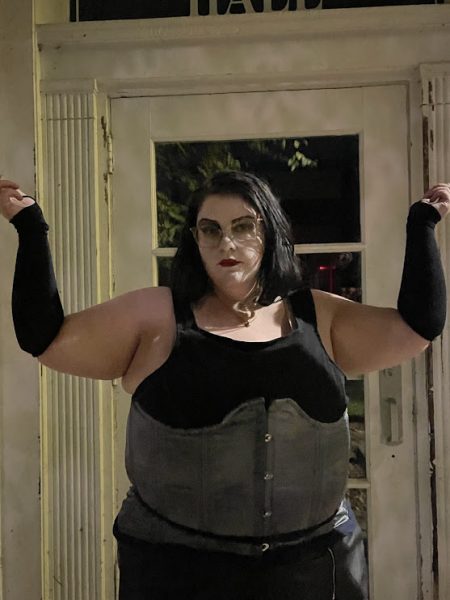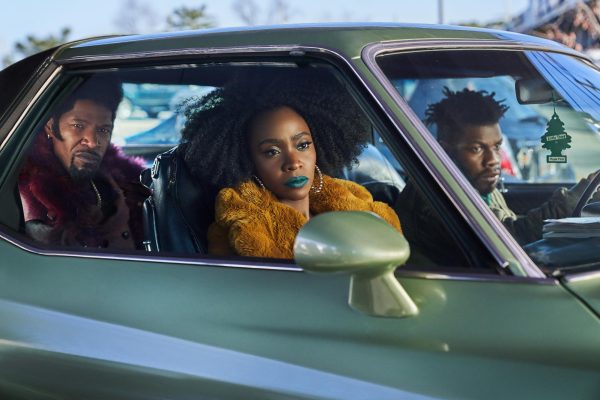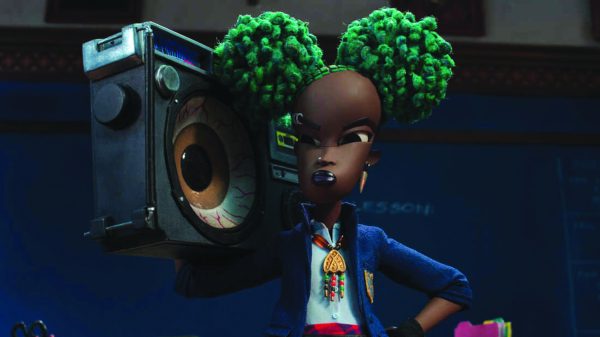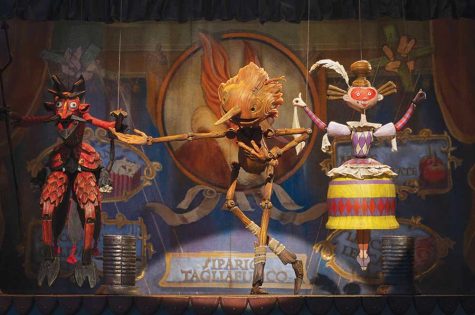Time to see “The Family”
“They said ‘The Family’s only worth a rental, huh?”
“The Family” satirizes the glamorization of mob life we’ve seen since Martin Scorsese blew it up to magnificent proportions with “Goodfellas.” (See also “Casino,” “Boardwalk Empire,” “The Sopranos,” etc., etc.)
You might mistake apparently dismissively lighthearted scenes of brutal violence and murder as senseless or tasteless, but that’s missing the director, Luc Besson’s, point: that this is what those other mob movies are showing us—that violence is as big a deal as sneezing or walking to the corner store for some bread or cheese.
Besson’s no stranger to violence. He’s the guy behind “The Fifth Element,” “Leon” (a.k.a. “The Professional”), and “Nikita” (a.k.a. “La Femme Nikita”), and he’s also the guy who produced the “Transporter” and “Taken” movies. But there’s a big difference between Besson’s violence and modern mob movie violence, which “Goodfellas” kicked off.
Besson’s violence is never pretty—in fact, it’s horrific: who can forget the scene where psychopathic Gary Oldman blasts away an entire family to classical music in his head in “Leon,” or Nikita’s horror in “Nikita” when her eternally blank-faced clean-up guy (played by Jean Reno, the “Leon” of Leon) starts shooting everyone in sight? If there’s a coolness to Besson’s scenes of violence, it’s because Besson recognizes the delightful style we can use in cinematic action scenes.
Violence brings tension, and the action movie is the punk kid of the musical film: mix tension and musicality and you understand the possibilities of the cinematic action scene (a possibility Besson and his disciples brilliantly explored again and again in the “Transporter” movies).
So for Besson the joy of sequences involving violence isn’t the violence but the sequence, the filmmaking. He would never suggest violence is anything but horrific. Mr. Scorsese, on the other hand, seems to find the violence itself gleeful, as though film is where he releases the pent-up sadism created by his guilt-fraught Catholicism.
I’d never say that to his face, and don’t get me wrong, I like the guy, even though I think his filmmaking really went downhill after “Raging Bull,” wherein he chose the Dark Side (respect and accolades over film). But if it isn’t because he’s a devout Catholic obsessively demonizing basic human impulses, where the hell else does his cinematic sadism come from? He just a psychopath or what? (“The King of Comedy” may hold the answer.)
There’s a scene in “The Family” where De Niro’s character, a vicious mobster, agrees to attend a local film showing and debate, to the chagrin of Tommy Lee Jones’s character—De Niro’s in the Witness Protection Program, and Jones is protecting him.
They’re supposed to be showing a harmless old flick with Frank Sinatra and Dean Martin, but the film society sends them the wrong print.
So De Niro winds up watching himself in “Goodfellas.” Afterwards, the scrawny, melodramatic Frenchman who organized the screening asks De Niro if that’s what it’s really like living in New York.
De Niro says, “Absolutely,” and launches into stories of family history and horrible murders: he paints a picture of a nightmare world for the clueless French people assembled, and when he’s done talking, they applaud.
Because he’s told them a great story. He’s given them a bridge between the film world and our world. It doesn’t matter that he’s just told them about sadism and murder and unspeakable horror, because their only experience to it is “Goodfellas”—the Scorsese way of doing it’s taken the reality out of real violence.
Now I can imagine someone launching in: “Well, it isn’t Scorsese that’s to blame!” they’d say. “Point your finger at Quentin Tarantino!”
Well, I do, after “Django Unchained.” Before that, his films were caricatures of specific sorts of movies in which harsh violence played a key element. The way Tarantino recreated that violence within his own movies, it was clear that he understood how over-the-top and brutal that violence was, which turns that violence into satire, but loving satire: Tarantino has a wonderful appreciation of the uniquely human flaws and perversions in those movies, and he tries to share that view of the films with a wide audience. That’s his thing.
But in “Django Unchained” that wasn’t clear, maybe because Sally Menke was gone, his career-long editor (Tarantino always said that his films were really Menke-Tarantino films), so the violence just seems carelessly brutal instead of satirically brutal. Before that, it was satire, so my finger points back to “Goodfellas.”
The characters in Besson’s “Family” are real goodfellas.
In one of the few moments in the movie that’s unmistakably Luc Besson, De Niro’s daughter, played by Dianna Agron (Quinn on “Glee”), is walking home after her first day of school. A caravan of emo French boys, who have been watching her all day, pull up. They offer her a ride. She says no. She gets down to the edge of the street and realizes she doesn’t know where the hell she is. So she agrees to let them drive her home.
But it takes a while, and she realizes they’re driving her out of town. The lead boy, a gawky, pimpled redhead who’s clearly no feminist tells her they’re just stopping for a break by the water. “It’ll be a chance to get to know us,” he keeps saying.
So they arrive by the water and the guys heave out some beer and they’re sitting on the grass. Agron’s character is waiting in the car. She gets out and asks the redhead what the hell’s going on. He feeds her the same shit, caresses her shoulder, then slips down one of her bra straps and grins.
“Oops,” he says.
Agron reaches into the open trunk and takes out the tennis racquet.
After she shatters it over the guy’s face, when all his little buddies are staring in horror, she screams, “If you expect to live with women, you better learn to treat them better! You want to have a future, don’t you? Well women are our future! Don’t you want to have a future?”
She drops the racquet, leaves him there, and steals his car.
See, despite the sadistic impulses of the family, they love each other, and it shows. It doesn’t just show in a big climax, or in the fact that they don’t attack each other, but in a foundation of little moments on which the film is built. These are the moments when I don’t sense any sarcasm; these are the naked moments.
The premise of the movie is that the family is being shifted from place to place as part of the Witness Protection Program. They keep compromising themselves. They’re fighting their nature, and trying to be better, and they improve: they become closer as a family. But, like in “Jurassic Park,” nature finds a way.
And I’d recommend you find a way to see the movie. It’s moving, it’s funny, it’s delightful. This is mediocre Besson, but even mediocre Besson is better than most films.
Tom Benton joined the Basement Medicine staff in spring 2011, assuming the position of editor-in-chief in spring 2012. He continues in that capacity...


